Special Report
The Worst Cities to Drive this Holiday Weekend, According to AAA
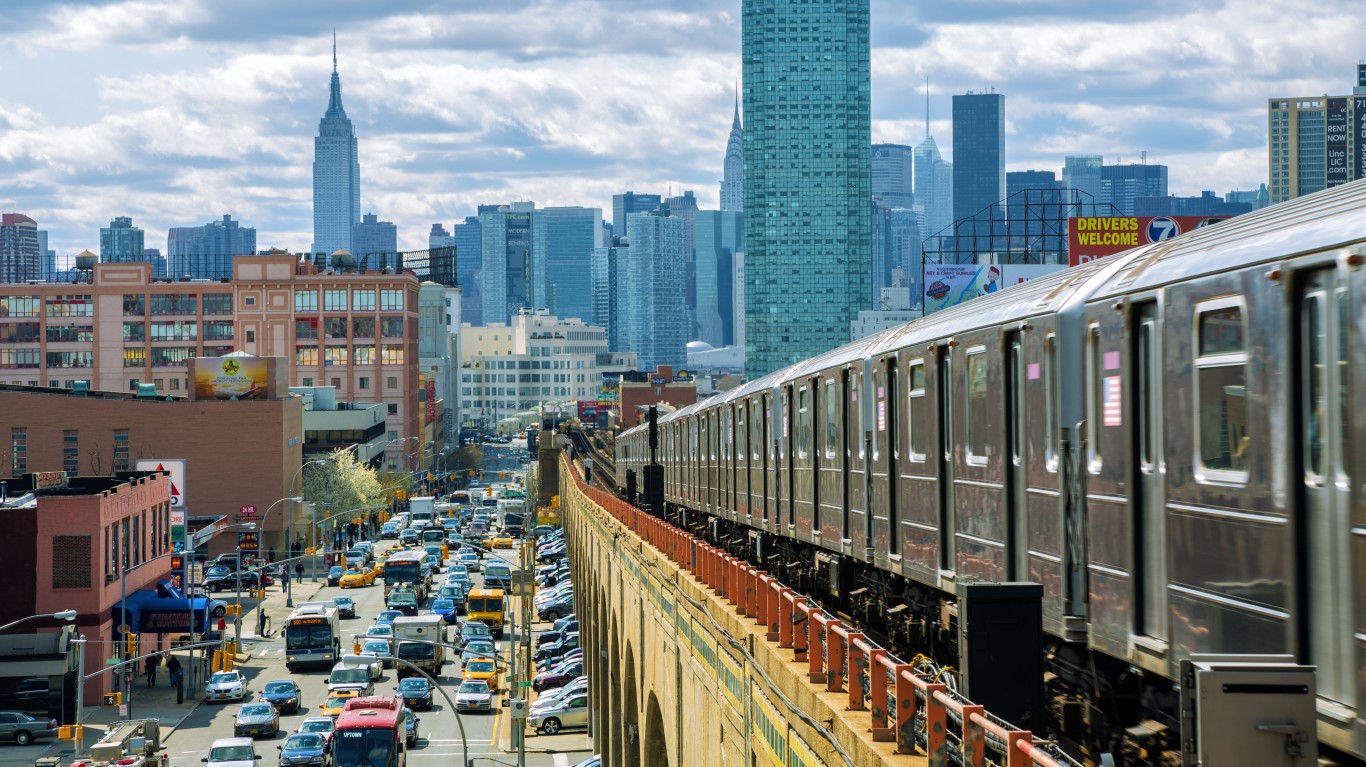
Published:

The number of Americans with Fourth of July travel plans is expected to surpass 47.7 million Americans over the holiday weekend. It is likely that travel volumes will approach the all-time record high set in 2019, and greatly exceed the 2020 low. (Here are the states fighting COVID-19 most successfully).
The travel volume estimate, released last month by car insurance company AAA Travel, represents a mere 2.5% drop from 2019, and an increase of nearly 40% compared to 2020, when many Americans avoided travel due to the COVID-19 Pandemic.
For the upcoming holiday, 24/7 Tempo reviewed the 10 metropolitan areas where traffic congestion in well-known corridors is expected to rise by the largest amount. All data was obtained from AAA. (Here is another Fourth of July list — the stories behind America’s national anthems, songs, and marches).
Click here for the worst cities to drive this holiday weekend, according to AAA
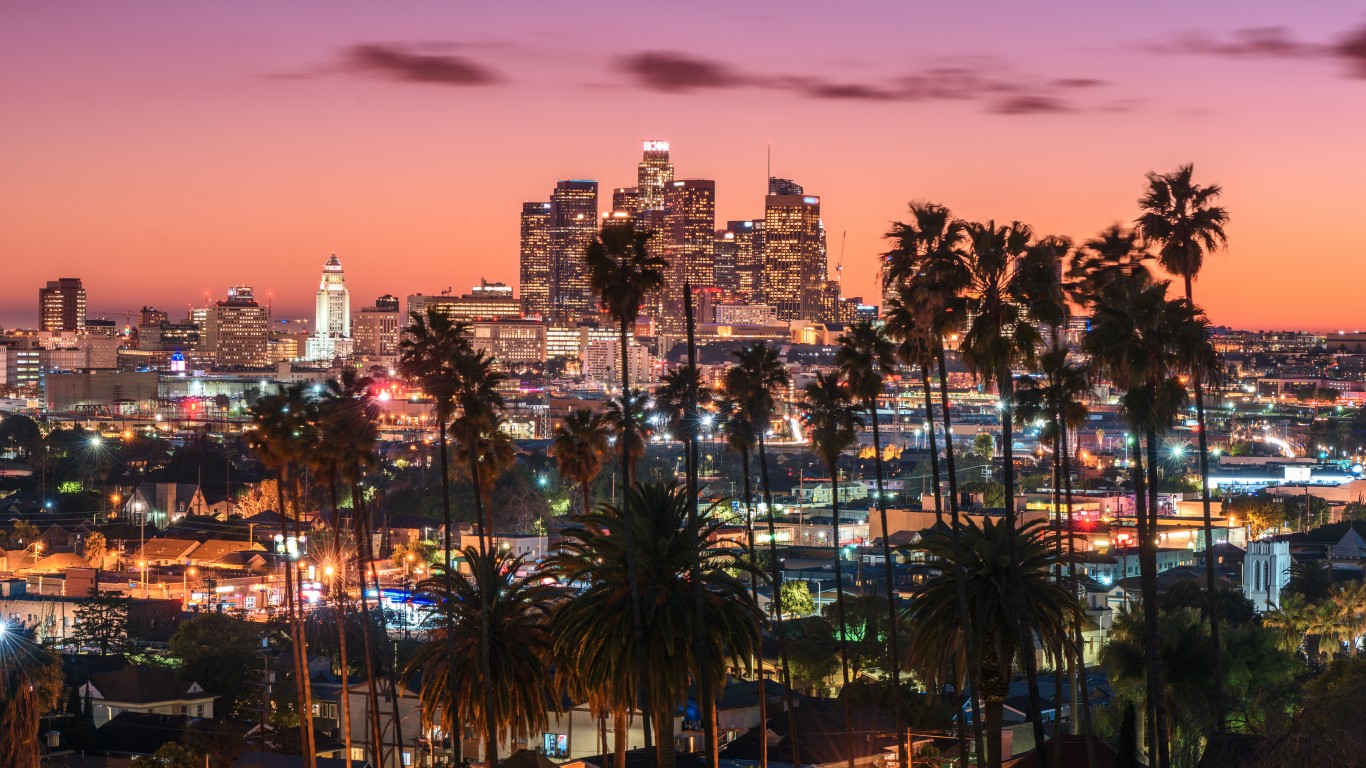
10. Los Angeles
> Most congested corridor: I-405 N, I-5 to Jefferson Blvd
> Peak congestion: Friday, 3:00 – 5:00 PM
> % over normal: 10.0%
[in-text-ad]
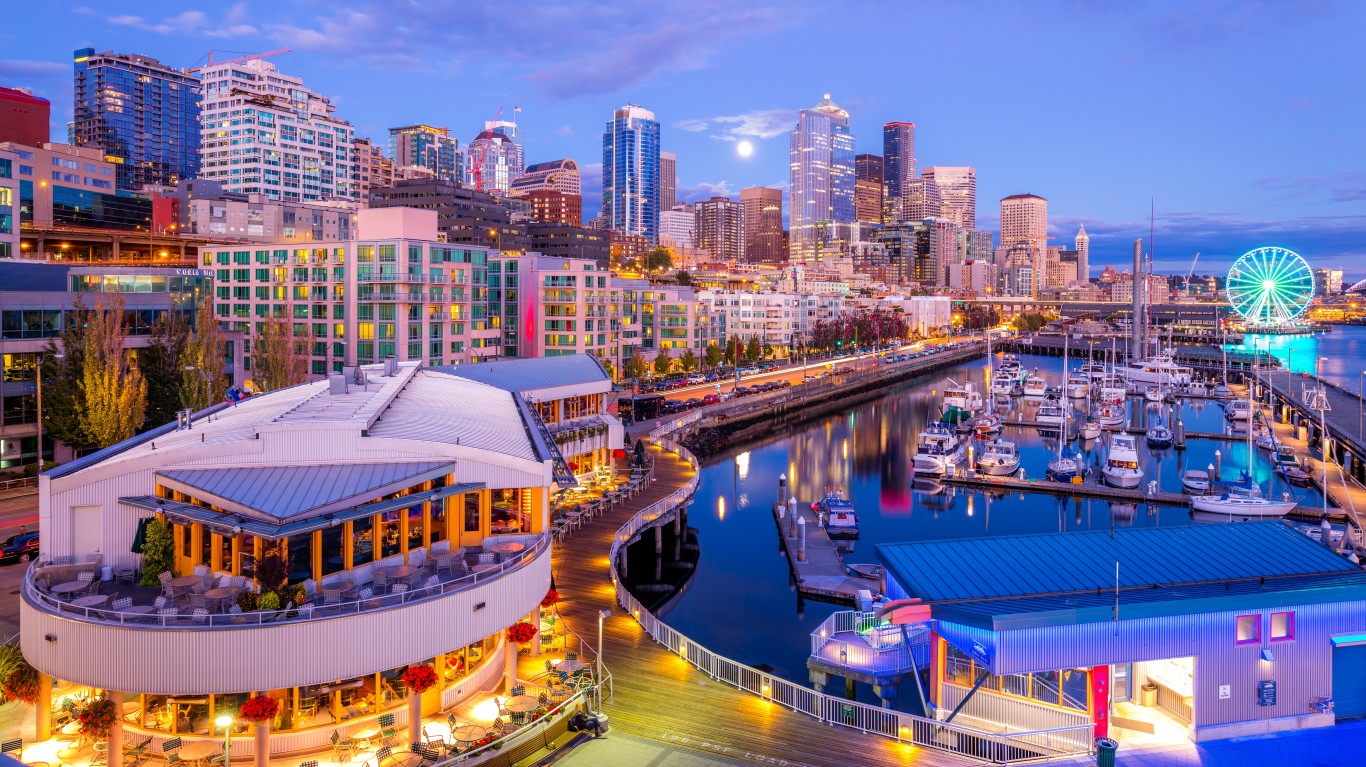
9. Seattle
> Most congested corridor: I-5 S, Capitol Blvd (Olympia) to JBLM
> Peak congestion: Friday, 1:00 – 3:00 PM
> % over normal: 20.0%
8. New York
> Most congested corridor: I-278 E, Bronx River to Williamsburg St
> Peak congestion: Thursday, 3:00 – 5:00 PM
> % over normal: 30.0%
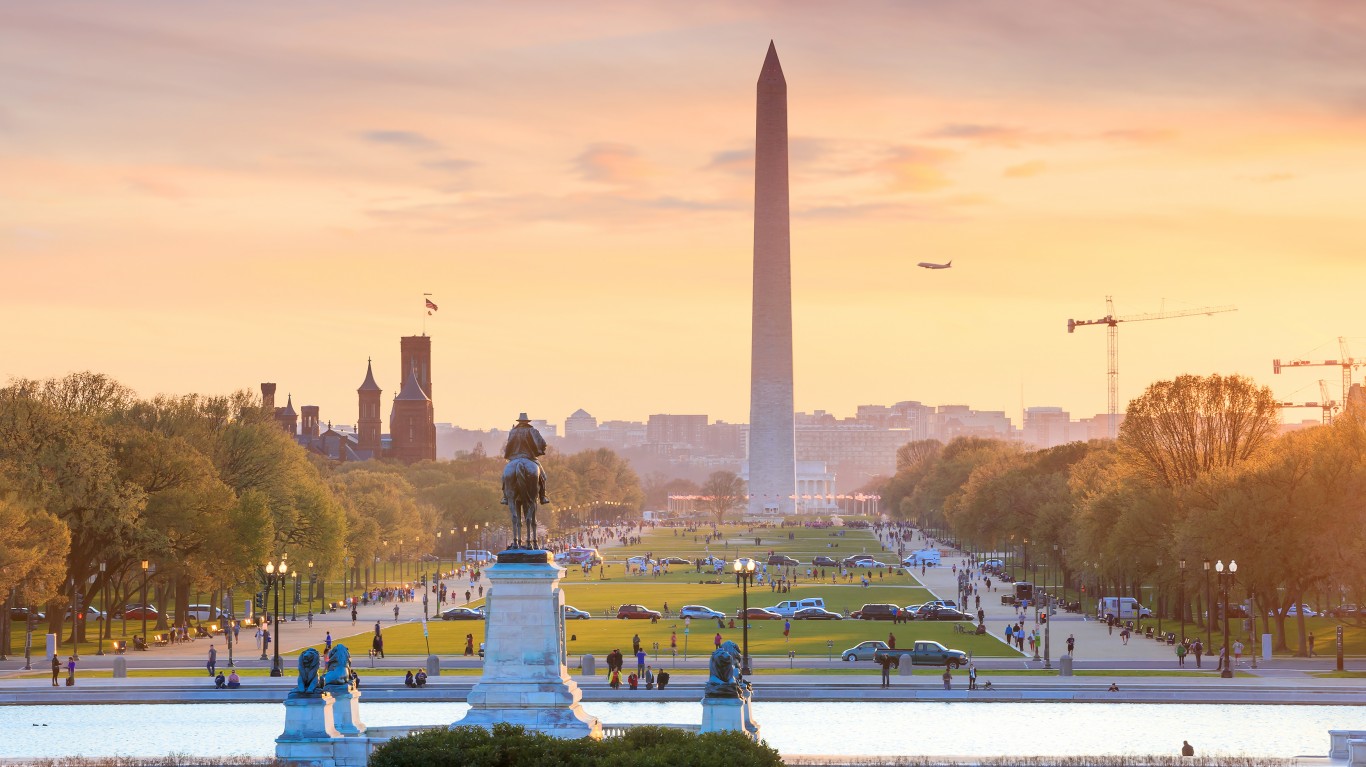
7. Washington DC
> Most congested corridor: I-95 S, Route 3 to Dumfries Road
> Peak congestion: Thursday, 2:00 – 4:00 PM
> % over normal: 30.0%
[in-text-ad-2]
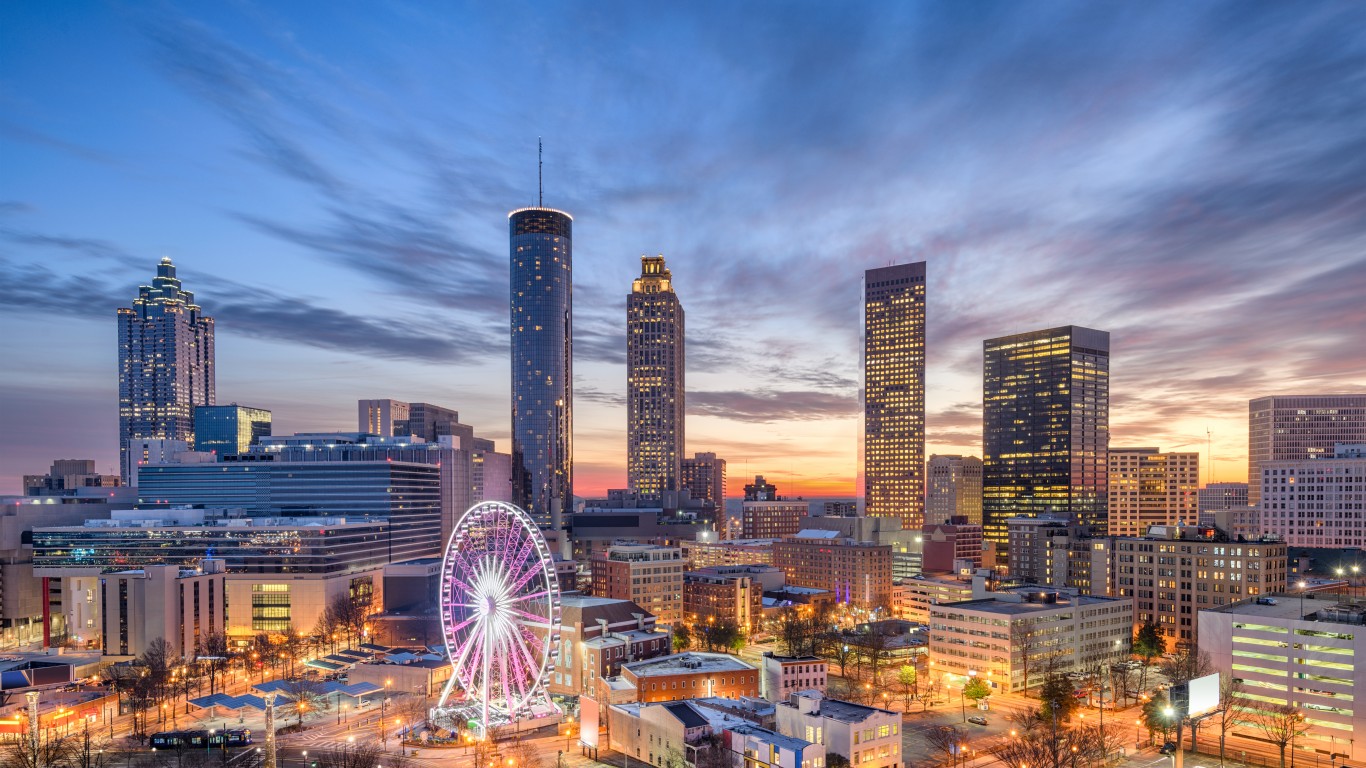
6. Atlanta
> Most congested corridor: I-75 N, Jodeco Road to Jenkinsburg Road
> Peak congestion: Friday, 1:00 – 3:00 PM
> % over normal: 50.0%
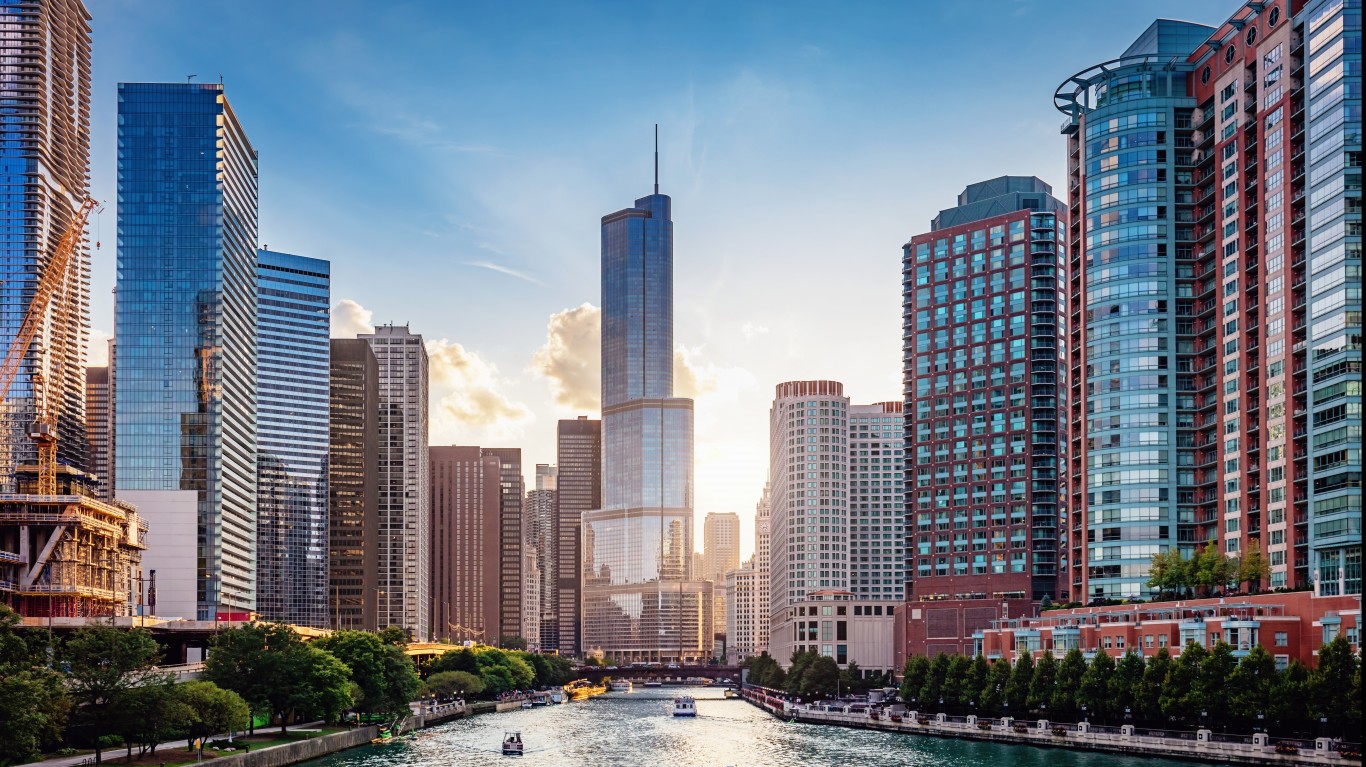
5. Chicago
> Most congested corridor: I-90 E, W Roosevelt Road to I-294
> Peak congestion: Friday, 4:00 – 6:00 PM
> % over normal: 50.0%
[in-text-ad]
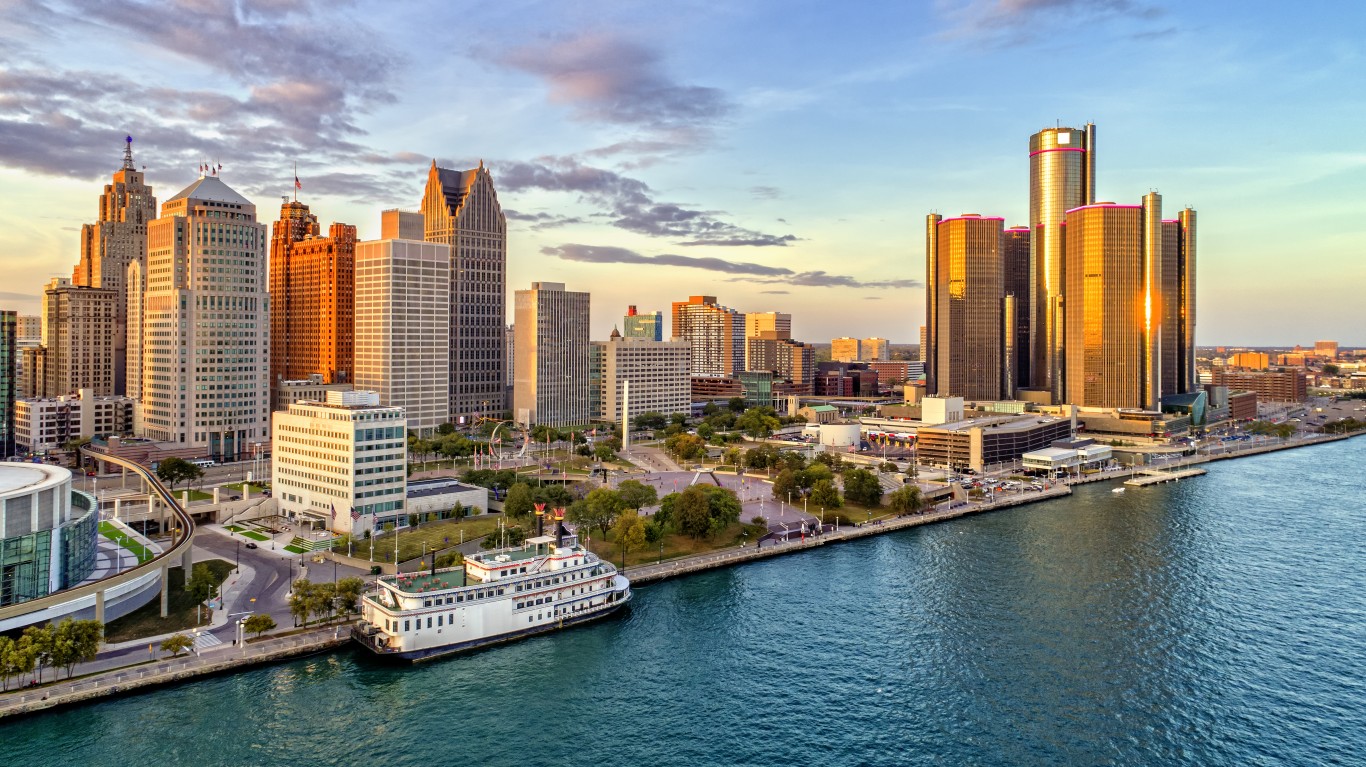
4. Detroit
> Most congested corridor: I-75 N, 12 Mile Road to Oakland St
> Peak congestion: Friday, 3:00 – 6:00 PM
> % over normal: 50.0%

3. Houston
> Most congested corridor: I-10 W, Bernardo Road to Pin Oak Road
> Peak congestion: Saturday, 8:00 – 10:00 AM
> % over normal: 50.0%

2. Boston
> Most congested corridor: I-95 S, MA-10 to Sanford Road
> Peak congestion: Monday, 3:00 – 5:00 PM
> % over normal: 330.0%
[in-text-ad-2]
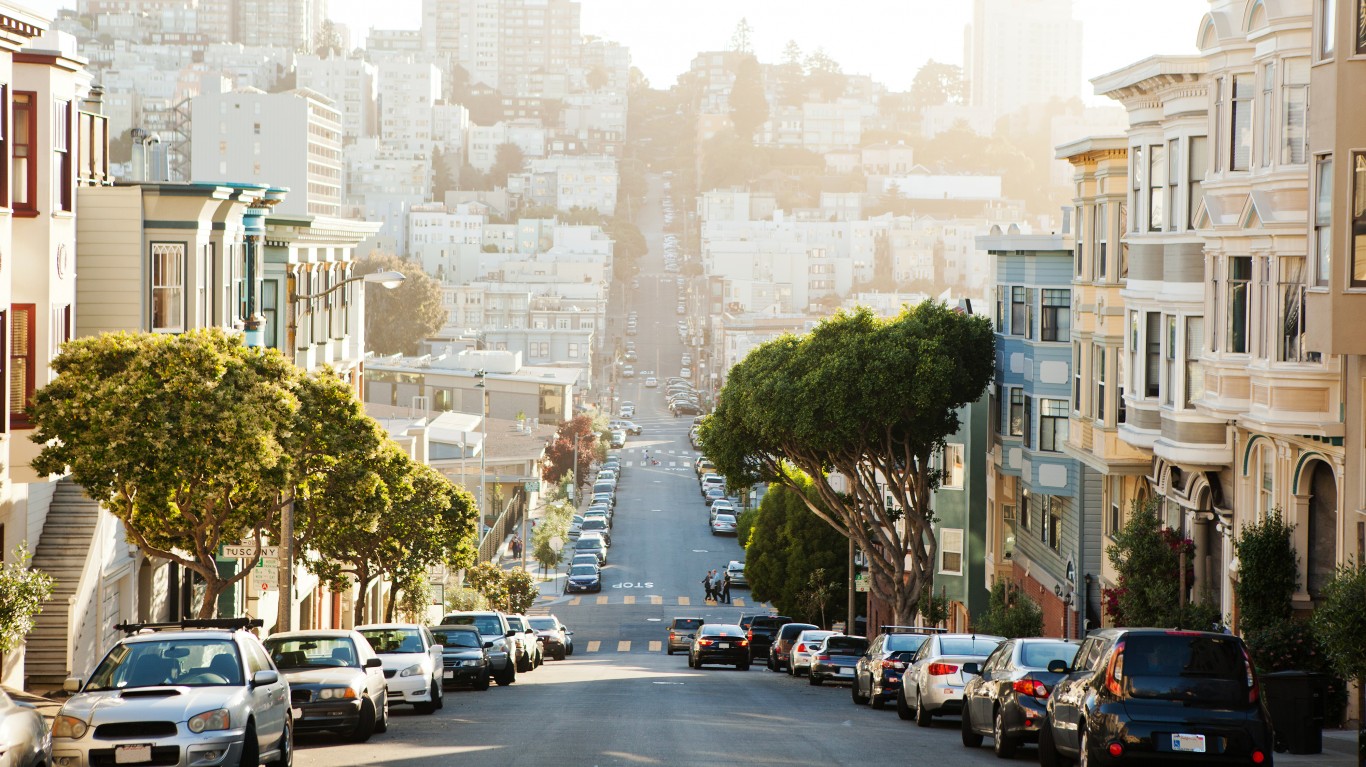
1. San Francisco
> Most congested corridor: CA-17 N, Lark Ave to Mt Hermon Road
> Peak congestion: Monday, 6:00 – 8:00 PM
> % over normal: 340.0%
Are you ready for retirement? Planning for retirement can be overwhelming, that’s why it could be a good idea to speak to a fiduciary financial advisor about your goals today.
Start by taking this retirement quiz right here from SmartAsset that will match you with up to 3 financial advisors that serve your area and beyond in 5 minutes. Smart Asset is now matching over 50,000 people a month.
Click here now to get started.
Thank you for reading! Have some feedback for us?
Contact the 24/7 Wall St. editorial team.